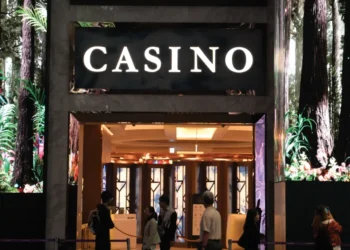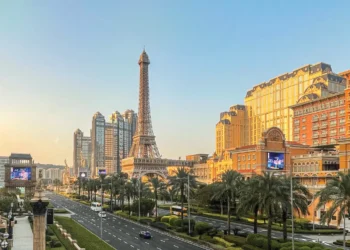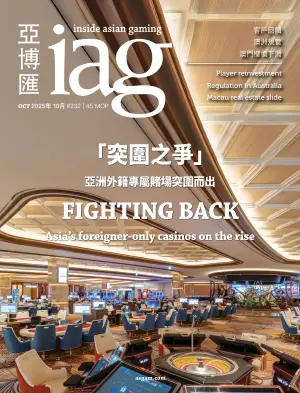Gaming industry employees around the world have started returning to work following COVID-19 shutdowns, but just how motivated they are may well depend on how well they were treated.
Imagine, if you will, that you’re an employee of Las Vegas Sands. On 17 March the company announces that its three Las Vegas properties, including the one you work at, will suspend operations for at least a fortnight – but probably much longer – in response to the COVID-19 pandemic. But don’t fear, it also issues a statement confirming none of its 9,300 local employees will be laid off or furloughed despite the shutdown.
Now imagine you’re an employee at Rampart Casino, owned by Hotspur Resorts, which in May informed a number of your colleagues they were being laid off – not in person, but via voice recording. Which company would you feel most comfortable returning to work for?
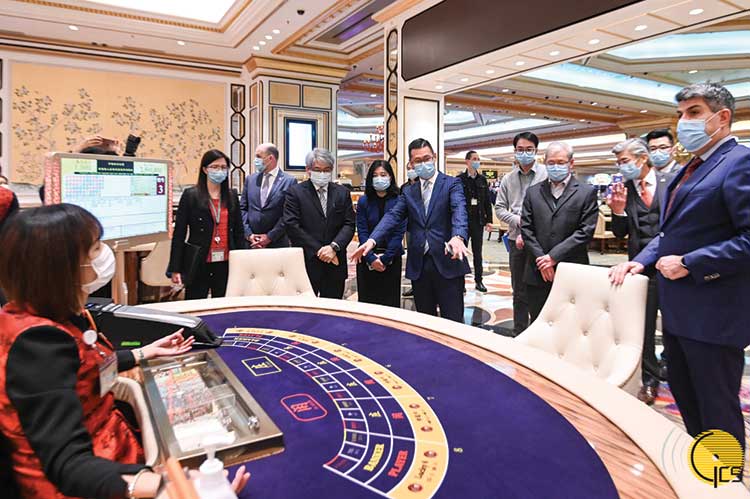
While much of the focus in recent months has been on the plight of casino operators around the globe as they start eyeing their first steps toward recovery from the COVID-19 pandemic, a crucial element of that recovery will center around the wellbeing of their employees and, more specifically, how those frontline hospitality workers are likely to feel about stepping back into the furnace.
“Companies who have demonstrated strong leadership where there is mutual trust between the manager and staff, and who have genuinely cared about how their employees are from a satisfaction or engagement viewpoint, are the ones that will emerge from this the strongest,” explains Jennifer Martinez, President and CEO of Las Vegas-based Consult HR Partners.
“For employees, it all comes down to the way they’ve been treated during this period of time. How have the F&B management or HR or the company’s executives communicated with them? How did they handle those first few weeks of the pandemic? And how effective has the re-boarding and re-training process been upon their return? All of these factors are really going to make a difference as to how the employees feel and if they want to stay. Even though there are going to be a lot of people out there in the market because they’ve been laid off or furloughed, if people aren’t happy, they are not going to want to work for a company they feel hasn’t treated them well. And that will show in the workplace.”

There is no doubt the challenges presented to gaming companies around the world, be they operators or suppliers, as a result of COVID-19 are unprecedented.
Never have so many in the industry been impacted so heavily at the same time. The American Gaming Association estimates around 650,000 gaming employees across the US were affected by coronavirus lockdowns, including 206,000 workers in Nevada and more than 95,000 on the Las Vegas Strip.
In Macau, where casinos closed for 15 days in February and customer numbers remain miniscule due to border restrictions, government regulations have prevented operators from laying off any staff. Nevertheless, more than 58,000 direct gaming employees – plus many more working in other areas of casinos and resorts – have been impacted, with many asked to take accrued holiday and sick leave or temporarily re-assigned to new roles.
The Philippines, one of the hardest – hit nations in Asia, employs an estimated 132,000 in gaming nationwide, according to gaming regulator PAGCOR, of which 63,000 work for licensed IRs and casinos, 31,000 for Philippine Offshore Gaming Operations (POGOs), 27,000 in licensed gaming stations and 11,000 for PAGCOR itself.
Singapore’s two IRs employ around 22,500 between them; Australia’s two main casino operators close to 27,500. Europe’s casinos employ well over 100,000.
Yet the fate of those employees has varied wildly depending on a range of factors, from the jurisdiction in which they work to the financial constraints or priorities of their employers.
The Las Vegas Strip itself is a case in point. While MGM Resorts and Caesars, both constrained financially, furloughed staff in their thousands, LVS and Wynn Resorts sent a powerful message to their employees by vowing to continue paying them throughout. It was an expensive exercise – Wynn put the total cost through the end of May at US$250 million for its 15,000 employees – but one that could reap significant benefits in the long run.
“There is no doubt that Wynn has gotten very positive PR in the way they have handled this situation very thoughtfully, and under the leadership of CEO Matt Maddox the company has now crossed from one side of the PR spectrum to the other,” says Martinez.
“But because this is so unprecedented and people are seeing the impact (people who were gainfully employed are now going and picking up food that has been donated by the casinos or restaurants), to see how employees are being taken care of is definitely top of mind for them.
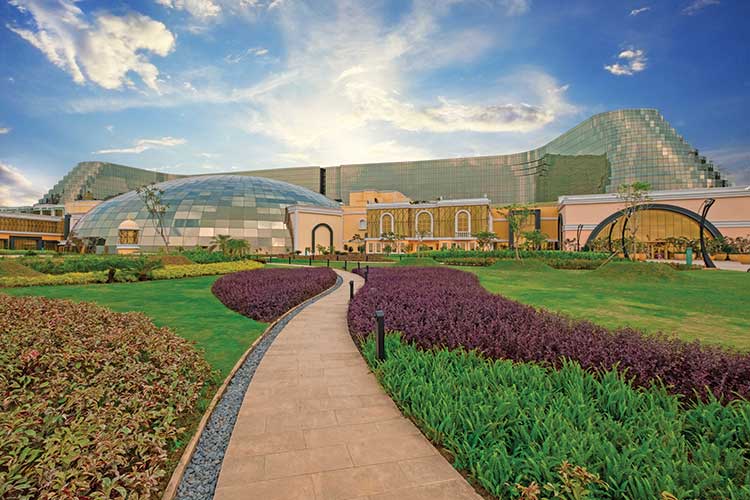
“From what I have been hearing, customers and employers are definitely taking note of which companies have been truly looking after their staff, and some customers might be more inclined to visit those casinos in future who they deem to have shown that they took care of their employees during the pandemic period.”
Sudhir Kalé, Founder and Principal of Australia-based GamePlan Consultants, agrees that practices implemented by companies during shutdown “will have a huge impact on employee engagement once the casinos open.
“It is unrealistic to expect any casino property to operate profitably at least in the next 12 to 18 months,” he says. “If employees themselves have financial and health security, these sentiments of safety would be conveyed to customers by the frontline staff. Such verbal and non-verbal communication will go a long way in bringing customers back.
“Paying employees their tipped wages, as Wynn did, during the hiatus is a great way to convey concern and empathy.
“Bad practices include furloughing employees, asking employees at frontline and junior management levels to take a pay cut, and increasing workload for employees without compensating them for it, such as additional hygiene measures.”
Martinez adds, “The two priorities for employees returning to work for a company, or maybe moving elsewhere instead, will be whether they have a role to return to that is the same or similar as before the pandemic, and the commitment to following safety protocols.”
Needless to say, feeling appreciated in hiatus is one thing, but just as important for operators calling employees back to work is making sure they feel safe. It seems, in theory at least, a relatively simple fix, yet already the implementation of sanitary measures has been shown to vary wildly from jurisdiction to jurisdiction.

The mandatory wearing of face masks, for example, has been an easier sell in Asia than elsewhere due to the long-held tradition of people wearing masks in public when sick. In Macau, barely an eyebrow was raised when the gaming regulator (DICJ) stipulated that all guests entering the SAR’s casinos would be required to wear a mask. Even today, more than a month after Macau’s last active cases of COVID-19 were given the all clear, almost everyone has continued wearing masks – not only in casinos but whenever they leave their residence.
It was recently revealed that 76 million face masks had been sold under the government’s facemask purchase scheme in the first four months since it was launched, equivalent to one mask per person, per day based on Macau’s population of 630,000.
Compare that to Nevada, where the reluctance of many customers to wear face masks upon reopening ultimately led to governor Steve Sisolak issuing a directive in late June for masks to be worn in public settings, including casinos, following pressure from employee lobby groups.
Assessing the realities of casinos reopening in the midst of the global coronavirus pandemic, veteran gaming consultant Dennis Conrad notes, “Both casino customers and casino employees will be afraid to return to the casino world for a significant period of time. This fear must be acknowledged and respected.
“All of the casino employees that were under-appreciated or taken for granted before the COVID-19 pandemic must be cherished, embraced and made to feel valued and safe after the pandemic.”
“Good practices would start with ensuring that employees feel safe and secure returning to work,” says Kalé, adding that customers will likely feel safe if employees do. “It does not make sense to open a casino if perceived health safety does not exist.
“I see no disconnect between employee safety and customer comfort. For sure the entire ambience will be one of discomfort and anxiety that both customers and employees will have to grapple with. If employees feel comfortable under the new abnormal, that sense of comfort and security will be parlayed on to the customers.”
Ultimately, it comes down to a perception of honesty from those at the top. As a key part of the global leisure, entertainment and hospitality industries, gaming has been among the hardest hit by COVID-19 and layoffs are an unavoidable reality.
In the US, MGM Resorts has issued an early warning to its 63,000-strong workforce that some layoffs are likely on their way. Caesars Entertainment informed Nevada state officials in March it would need to lay off around 3,200 workers as a result of the virus, while multiple smaller operators across the nation have taken similar measures.
 In Asia, Philippines IR Okada Manila announced in May it was letting go of 1,000 employees, with PAGCOR telling IAG it was concerned more could follow elsewhere. Melco Resorts and Sands China have taken a higher–level approach, letting some middle and senior management personnel go and embarking on restructuring rather than mass layoffs.
In Asia, Philippines IR Okada Manila announced in May it was letting go of 1,000 employees, with PAGCOR telling IAG it was concerned more could follow elsewhere. Melco Resorts and Sands China have taken a higher–level approach, letting some middle and senior management personnel go and embarking on restructuring rather than mass layoffs.
In that regard, the pain of COVID-19 can in fact represent a unique opportunity for those who play their cards right.
“What operators should be doing is taking a look at their entire workforce and using this crisis as an opportunity to clear some deadwood,” Kalé offers.
“A lot of job titles and roles would make absolutely no sense in the current environment. Second, use the lean times to create a truly employee- and customer-centric culture, and live that culture every single moment. Third, use pre-shift meetings to good effect so that employees feel assured and energized to enter the war zone.”
Says Martinez, “Companies with strong leadership, who genuinely care about their employees, commit to social responsibility and their core values, communicate often with their stakeholders, and put health and safety front-and-center throughout their entire operations, will make it through.
“And those that make it through will have a greater impact on reducing our unemployment numbers. In doing so, they will emerge as the strongest companies with the best reputations among employees and customers.”













